
Self-care for Caregivers
Remember to take care of yourself, so you can be the best caregiver for your child.
Taking care of kids, who naturally have big feelings and need lots of adult support to manage them, can be hard work! It’s important to take time to refresh and refuel. Try some of these tips:
Reach out to trusted friends, family, and community organizations. Ask for help when you need it. To reduce stress, make a list of family and friends who can help you in a tough time. Include their contact information and times they are free to help out.
Take time for yourself every day. It can be as small as three deep breaths in between making dinner and putting kids to bed. If you have more time, try: reading a book, magazine or blog, listening to a favorite song, going for a walk, calling a friend, taking a bath, writing thoughts and feelings in a journal, thinking about a happy memory.
Practice patience and persistence and model these behaviors for children to see. Let children see you trying after you fail, taking a deep breath when you are frustrated, and coming up with a new plan when your plan does not work.
Remind yourself of these important things:
- You are not alone. Many people are in similar situations.
- There’s help out there, and it’s okay to ask for it.
- It’s normal to have a lot of different feelings.
- You don’t have to be perfect.
- Celebrate the gifts in your life and all successes, no matter how small.

Communicating with Parents and Caregivers Around Routines
An article offering strategies for communication with parents/caregivers.
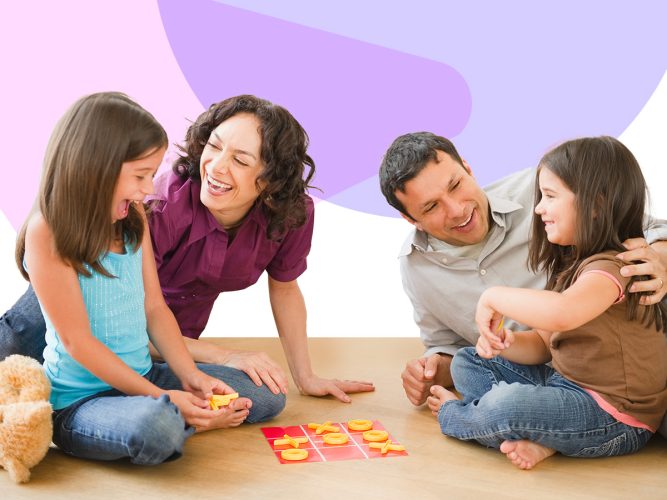
Shaping an Engaging Learning Environment
Your space is full of opportunities for children to learn and grow!

Planning Our Days: Creating Schedules for Children
Planning ahead can help you be intentional about the learning of the children in your care!
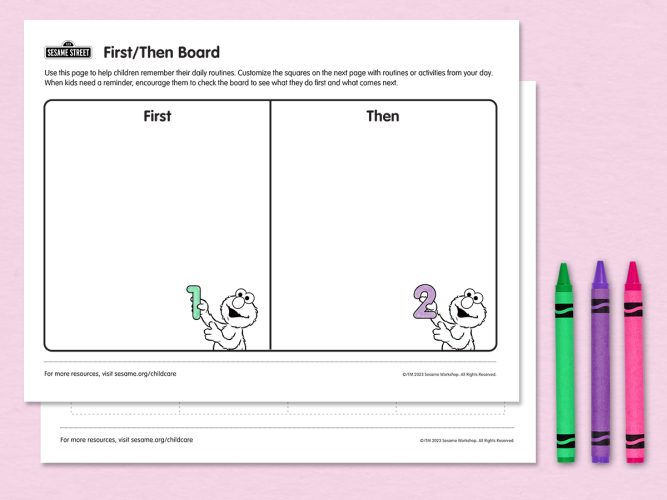
“First/Then” Boards: Managing Daily Routines
A printable tool to help children know what to expect in their daily routines and activities.
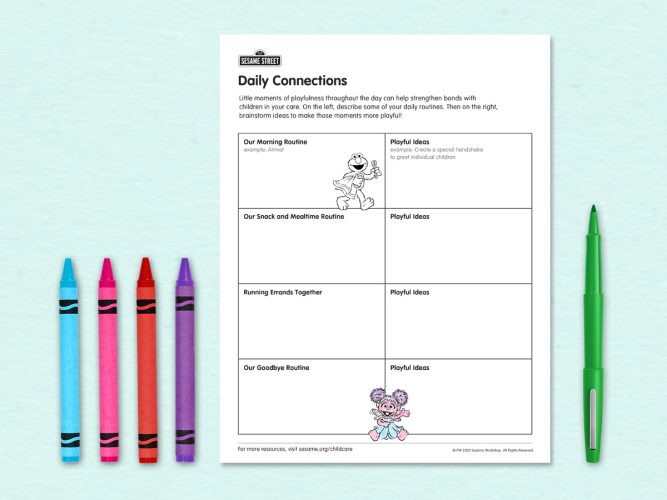
Planning for Play in Daily Routines
A printable page to plan moments of playfulness during daily routines.
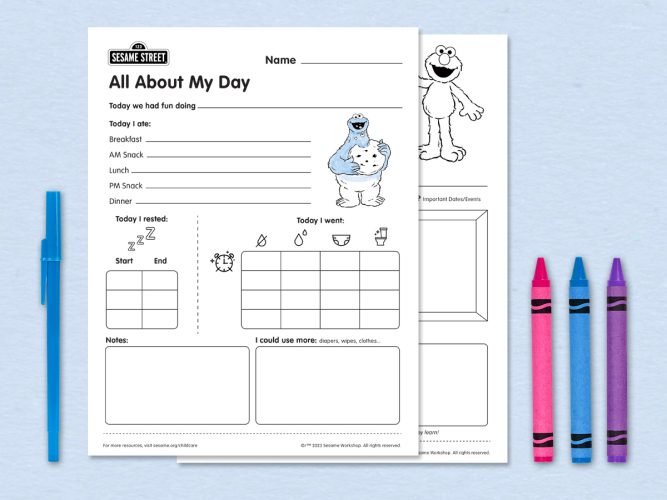
Provider-Parent Communications Log
A printable page to help parents and caregivers communicate about a child’s day.
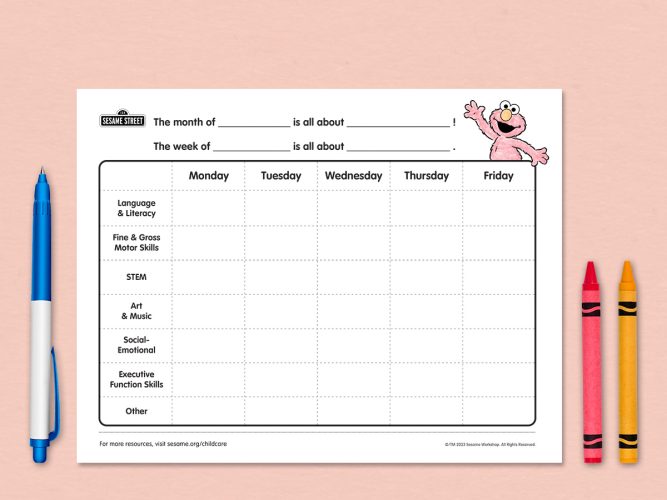
Lesson Planning Practice
A tool to plan opportunities for learning connected to monthly and weekly themes.
